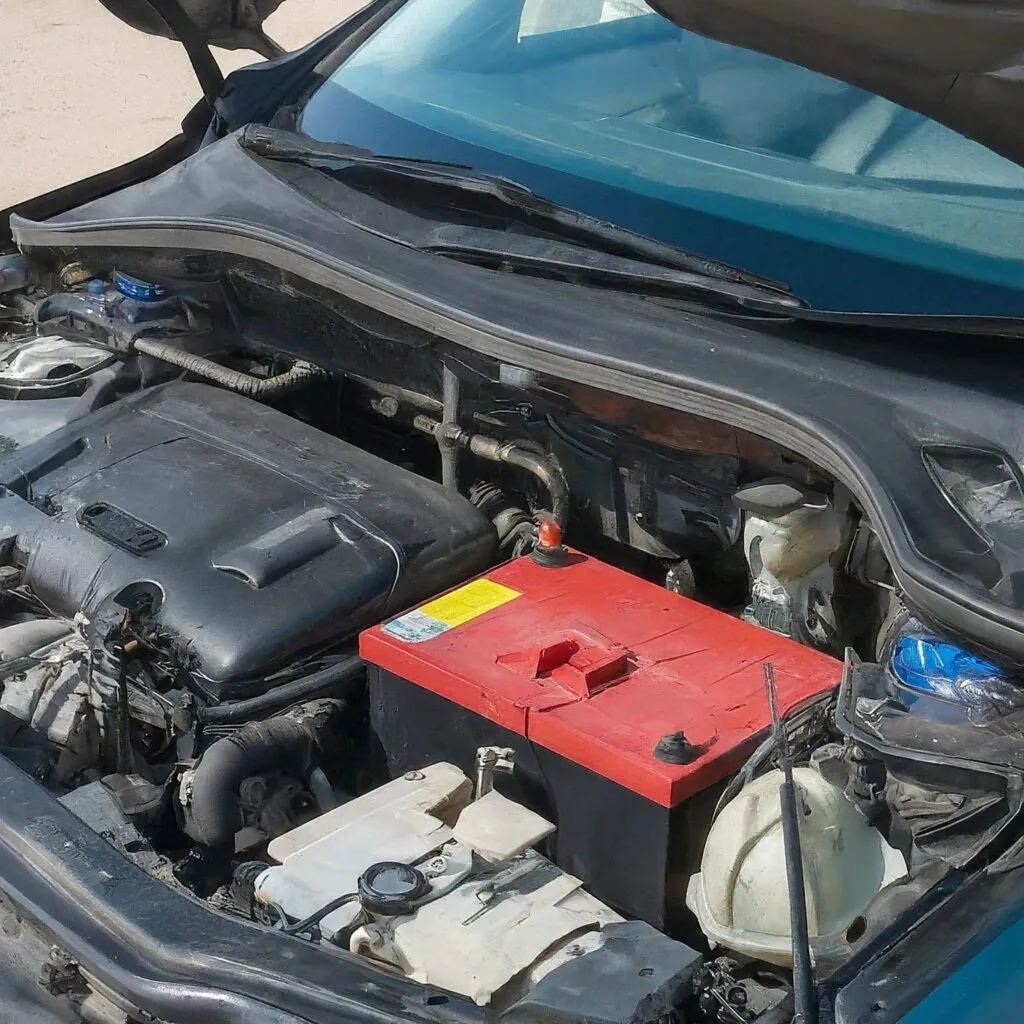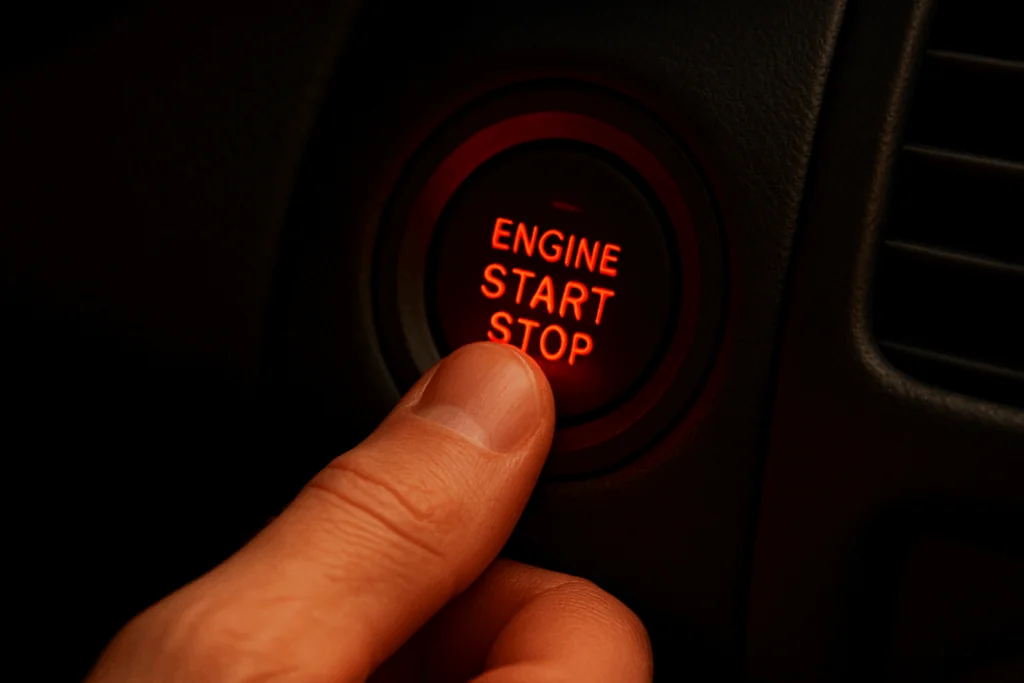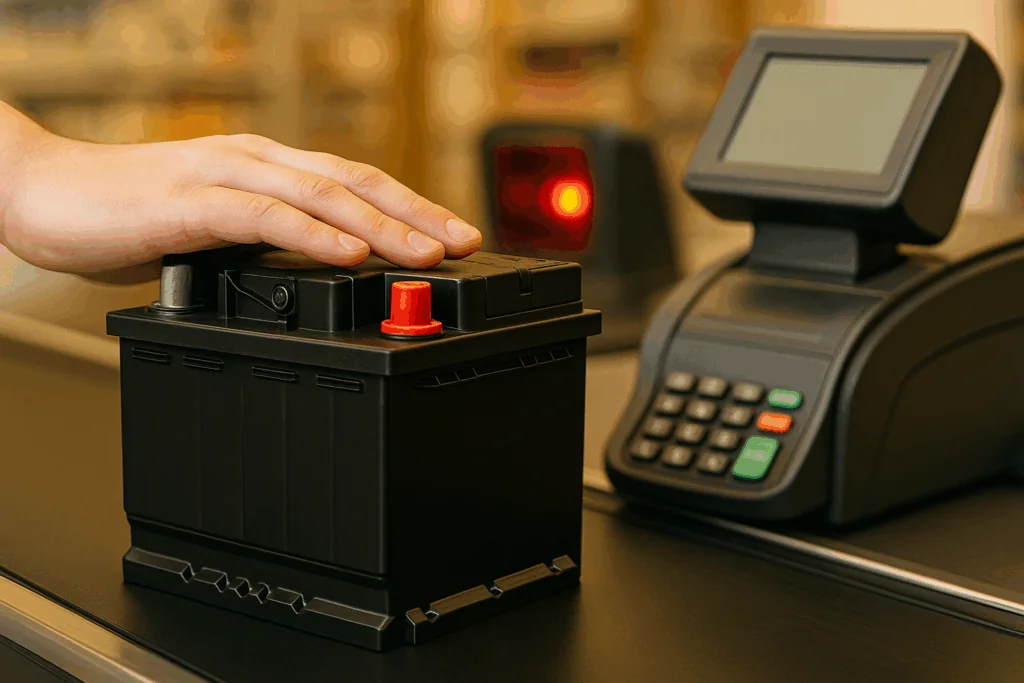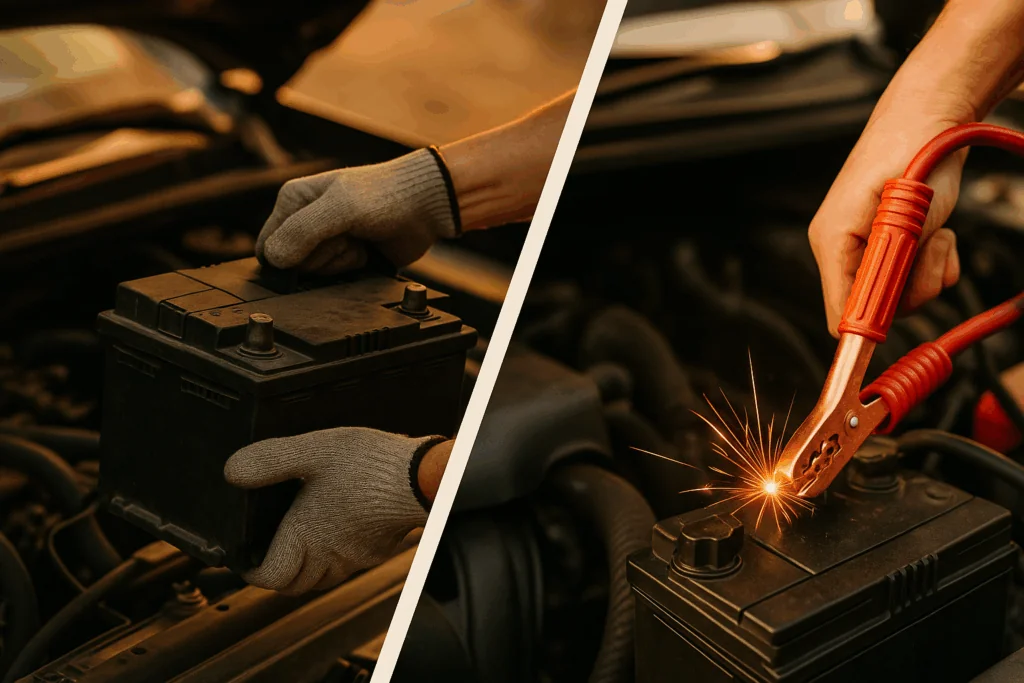
The scorching desert climate of Dubai takes a heavy toll on car batteries. While the average car battery lasts 3-5 years, Dubai’s extremely hot summers can cut your battery’s lifespan in half.
With temperatures frequently exceeding 40°C in the summer, the heat puts immense strain on your car’s electrical system. From struggling to start your engine to dimming headlights, the signs of a failing battery often begin to show after just a couple of years in Dubai.
Don’t get caught off guard and stranded with a dead battery. Pay attention to the warning signs, and learn how to take proactive steps to replace your battery before it leaves you immobilized without AC in the middle of a Dubai summer.
Sign #1 – Difficulty Starting
Dubai’s hot climate can take a major toll on car batteries. High temperatures cause battery fluid to evaporate, which makes it harder for your battery to start your engine.
As a battery weakens, you may notice more difficulty starting your car or the need to turn the ignition multiple times before the engine fires up. Cranking the starter motor draws a lot of current from the battery. So if the battery is not at full strength, it may struggle to provide enough power to start the engine.
The extreme heat in Dubai speeds up battery fluid evaporation and corrosion of the lead plates inside the battery. This deterioration reduces the battery’s cranking amps, which measure its ability to start your engine.
If you find yourself needing to hold the key in start position longer or make multiple attempts before your car starts, that’s a telltale sign your battery is on its way out. The hotter it gets in Dubai, the faster a weak battery will fail to provide sufficient power to kick over the starter motor. Replace your battery as soon as you notice any difficulty starting to avoid being stranded by a dead battery.
Sign #2 – Dimming Lights
When you turn on electrical components in your car like the headlights or radio, this drains power from the battery. A weak battery will struggle to provide enough power, causing the lights to briefly dim or flicker when you first start the car.
The battery is tasked with providing a sudden burst of electricity when starting the engine. If the battery charge is low, this will cause a voltage drop that dims the lights and electronics momentarily. This dimming indicates the battery is straining to deliver enough power. As the battery continues to wear out, you may notice the headlights get progressively dimmer when starting the engine.
Dimming or flickering lights are one of the most common signs of a battery on its way out. If you begin noticing the lights in your vehicle dim at start up, even faintly, it likely means the battery is not holding a full charge and replacement should be considered. Don’t ignore dimming lights, as sooner or later the weak battery will leave you stranded.
Sign #3 – Battery Light
One of the most obvious signs of a failing car battery is if the battery warning light comes on your dashboard. The battery light looks like a car battery symbol and indicates issues with your charging system.
When you first turn on your car, it’s normal for the battery light to briefly flash on, then turn off once the alternator starts charging the battery. However, if the battery light stays illuminated after starting your engine, it likely means there is an issue with your alternator not properly charging the battery.
Without a properly functioning alternator to keep your battery charged, the battery will eventually die. The battery light alerts you that your charging system needs attention before you get stranded with a dead battery.
Some of the potential issues that can cause the battery light to stay on include:
- Faulty alternator
- Broken or loose alternator belt
- Faulty battery
- Poor electrical connections
Bottom line – if you notice the battery warning light continuing to stay on after starting your engine, don’t ignore it. Have your charging system inspected and repaired promptly to avoid being left with a depleted battery. The battery light is your cue to take action.
Sign #4 – Corroded Terminals
Over time, battery terminals can corrode due to chemical reactions between the lead, sulfuric acid, and air. This corrosion appears as white or blue powdery buildup around the terminals.
Corrosion prevents proper electrical contact between the battery terminals and the connectors that attach the battery to the car’s electrical system. Without a solid connection, your battery can’t provide the amperage needed to start the engine or power accessories.
The corrosion is an electrical insulator that increases resistance, leading to a voltage drop. This makes it difficult for your battery to fully recharge. Eventually, the loss of electrical connection due to corrosion will cause your battery to die.
To fix corroded battery terminals, the buildup needs to be cleaned off completely. This may require a wire brush or baking soda and water solution. Once cleaned, the terminals should be coated in anti-corrosion grease or spray to help prevent future corrosion. If the corrosion is severe enough that the terminals are eaten away, the battery will need to be replaced.
Sign #5 – Cracked Case
If you see any cracks or damage to the plastic casing around the battery, it’s a sign the battery is reaching the end of its life. The casing helps protect the sensitive lead plates and electrolyte fluid inside the battery. Once the case is compromised, the battery is much more vulnerable to leaks, shorts, and failure.
Cracks allow electrolyte fluid to leak out, which depletes the battery’s capacity. Cracked cases also expose the internal components to air, which can corrode the lead plates and connections. Even small cracks and damage dramatically accelerate battery degradation.
As a battery nears the end of its lifespan, plastic cases become more brittle and prone to cracking, especially in hot climates like Dubai. The extreme temperatures cause the plastic to expand, contract, and weaken over time.
If you notice any cracks, splitting, or damage to your battery case, it’s time to have the battery tested and most likely replaced. Putting it off risks being stranded with a dead battery or causing costly damage if leaking battery acid contacts other components under the hood.
How Dubai’s Heat Impacts Batteries
Dubai’s hot climate can take a major toll on car batteries. The average high temperatures in Dubai exceed 40°C for several months each year. Extreme heat causes the electrical load on your car’s systems to increase as the air conditioning works harder to keep the interior cool. Higher electrical loads drain the battery faster.
Additionally, heat accelerates corrosion of the battery terminals and internal connections. Corrosion causes resistance and interferes with the battery’s ability to deliver power. Hot temperatures also accelerate evaporation of battery fluid, which can expose more of the internal plates and shorten the battery’s lifespan.
Between the increased electrical load and accelerated corrosion, Dubai’s hot weather is very taxing on car batteries. It’s important to monitor your battery closely and replace it promptly when you see any warning signs of failure. The heat will continue to wear down the battery, so don’t wait until it leaves you stranded. Take action at the first signs of trouble.
When to Replace Your Battery
With Dubai’s extreme heat, your car battery takes a beating and has a shorter lifespan than in more temperate climates. Plan to test car batteries over 2-3 years old at least annually to check their condition. Even with regular battery maintenance like keeping terminals clean, heat wears them down faster.
Signs like difficulty starting, dimming lights, or the battery indicator light can signal when it’s time for a new battery. But even without obvious symptoms, batteries gradually lose capacity as they age. Old batteries may still start the car, but can’t hold a full charge. This leaves you at risk of getting stranded when the battery fails unexpectedly.
Rather than waiting for complete failure, proactively replacing weakened batteries can prevent headaches down the road. MySyara recommends testing car batteries annually once they are 2-3 years old. We use professional load testing equipment to accurately determine your battery’s condition and remaining lifespan. This allows us to advise whether your battery needs replacement before problems arise. Don’t get stuck with a dead battery in Dubai’s heat. Schedule battery testing with MySyara to stay powered up.
MySyara’s Battery Replacement
At MySyara, our automotive experts have years of hands-on experience assessing battery health and conducting replacements. Our skilled technicians use advanced testing equipment to diagnose your battery’s condition and determine if replacement is needed.
We only use top-quality batteries from leading manufacturers, tailored to your vehicle’s specifications. This ensures optimal performance, longevity, and reliability from your new battery.
Our battery replacement service includes safely disposing of your old battery, installing the new one, and testing it to verify everything is working perfectly. We’ll also clean up corrosion on battery terminals and cables. This goes beyond just swapping the battery to extend its lifespan.
Our streamlined process makes battery replacement quick and convenient. We understand an unexpected battery failure is disruptive, so we work to get you back on the road as fast as possible.
With MySyara, you can trust you’re getting a comprehensive battery service from knowledgeable professionals. We aim to provide motorists in Dubai with honest, expert automotive care.
Battery Replacement FAQs
How do I know when it’s time to replace my car battery?
The average car battery lasts 3-5 years. Signs it may need replacement include difficulty starting your car, dimming headlights, cracked case, corroded terminals, or the battery light coming on. Have your battery tested if you notice these issues. Generally it’s time to replace it when charge drops below 50% of capacity.
How much does it cost to replace a car battery?
The cost to replace a car battery runs AED 300-800 on average, including parts and labor. Price depends on battery type, vehicle make and model. Premium batteries with longer warranties cost more. MySyara offers competitively priced, high quality battery replacements.
Can I replace the battery myself or do I need a mechanic?
While you can replace a battery yourself, for safety we recommend having a professional do it. They have proper equipment to lift the battery and protect against dangerous acid leaks. MySyara’s experienced technicians can replace your battery quickly and properly. Let the experts handle this maintenance task.



